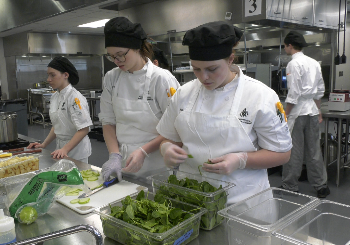LANSING, Mich. (WZMQ) – Michigan is set to receive more than $45 million from the U.S. Department of Agriculture. The goal is to bring, high-speed internet and clean water infrastructure to rural communities.
11 different municipalities in Michigan will be receiving a combined $45 million in water and waste disposal loans and grants, intended for improvements to wastewater treatment systems and to replace lines of drinking water mains.
Sarah Lucas, the Director of Michigan’s Office of Rural Prosperity explained that housing, internet access, and outdated infrastructure are the most common issues brought up during her conversations with leaders in rural communities. She said projects in the U.P. deal with limited budgets and administrative capacity setbacks when it comes to the actual ability to address their own needs at the local and regional levels.
“It’s been a challenge for rural communities to meet all of those needs because of the expense and the cost of actually expanding that infrastructure across really large geographic regions,” Lucas said. “With these grants addressing issues like clean water and high-speed internet access, they’re really hitting some of the biggest priorities that rural communities have expressed.”
The funding is part of President Biden’s Investing in America Initiative through which the village of Baraga has been awarded a $1 million loan and a $700,000 grant to complete the third phase of improvements to the village’s water system.
As a part of the bipartisan infrastructure law, Michigan has also recieved $1.5 billion in funding from the broadband equity, access, and deployment program to expand high-speed internet access to unserved and underserved communities.
“It’s a big lift for small communities that don’t have a lot of administrative staff or dollars in their budget to go after big projects like this,” Lucas said. “The digital divide in rural communities is real and it has significant impacts on opportunities for rural residents.”
Lucas explained that the digital divide has had a significant impact on opportunities, health, education, and remote work opportunities in the U.P. and that the funding will play a huge part in local, regional, and state commitment to plan for overdue updates and to make sure communities are ready to apply for the funds when they become available.










